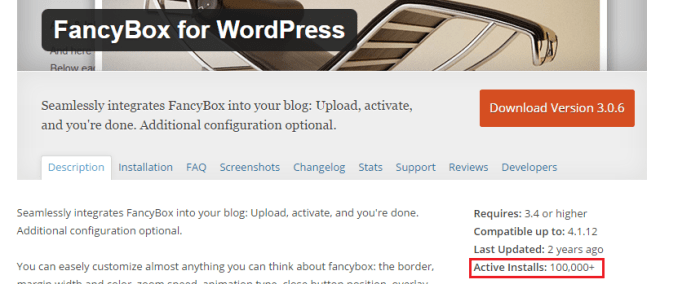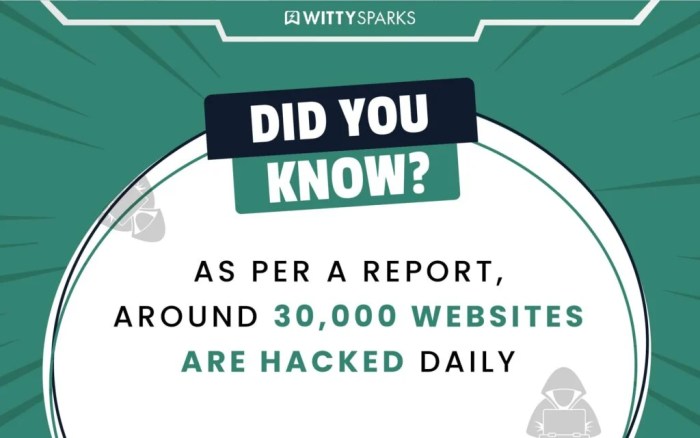How to Secure Your WordPress Website from Hackers – In today’s digital landscape, securing your WordPress website is paramount. WordPress, while incredibly popular and versatile, is also a frequent target for hackers due to its widespread use and the availability of numerous plugins and themes. This comprehensive guide will equip you with the knowledge and strategies to significantly bolster your website’s security, minimizing the risk of breaches and data loss.
We’ll cover everything from fundamental best practices to advanced techniques, ensuring your site remains safe and reliable.
Fundamental WordPress Security Measures: A Strong Foundation
Before diving into more advanced techniques, let’s establish a solid security foundation. These are the essential steps every WordPress website owner should take:
1. Choose a Strong and Unique Password
This might seem obvious, but a weak password is the easiest entry point for hackers. Use a password manager to generate a complex, unique password for your WordPress admin account. Avoid using easily guessable information like birthdays or pet names. Consider using a password manager like LastPass or 1Password to securely store and manage your passwords.
2. Regularly Update WordPress Core, Themes, and Plugins
Keeping your WordPress installation, themes, and plugins up-to-date is crucial. Updates often include security patches that address vulnerabilities exploited by hackers. Enable automatic updates whenever possible to ensure you’re always running the latest, most secure versions. Check for updates frequently, even if automatic updates are enabled.
3. Install a Robust Security Plugin, How to Secure Your WordPress Website from Hackers
Security plugins provide an extra layer of protection against various threats. Popular options include Wordfence, Sucuri Security, and iThemes Security. These plugins offer features like malware scanning, firewall protection, login security enhancements, and more. Choose a reputable plugin with positive reviews and regular updates.
4. Limit Login Attempts
Brute-force attacks involve repeatedly trying different password combinations to gain access. Plugins like Limit Login Attempts can restrict the number of login attempts from a single IP address, significantly hindering brute-force attacks. This simple step can dramatically improve your website’s security.
5. Use Two-Factor Authentication (2FA)
2FA adds an extra layer of security by requiring a second form of verification beyond your password. This could be a code sent to your phone or email, or an authentication app like Google Authenticator. Many security plugins offer 2FA integration, significantly reducing the risk of unauthorized access even if your password is compromised. Consider using a reputable authentication app like Authy or Google Authenticator.

Source: hogtheweb.com
Advanced WordPress Security Techniques: Elevating Your Defenses
Once you’ve established a strong foundation, you can implement more advanced techniques to further enhance your website’s security:
1. Secure Your Hosting Environment
Your hosting provider plays a vital role in your website’s security. Choose a reputable hosting provider with a strong security track record. Look for features like regular backups, firewall protection, and security monitoring. Consider managed WordPress hosting, which often includes enhanced security features.
2. Implement an SSL Certificate
An SSL certificate encrypts the communication between your website and visitors’ browsers, protecting sensitive data like passwords and credit card information. This is crucial for building trust and complying with security standards like PCI DSS (for e-commerce sites). Obtain an SSL certificate from a trusted Certificate Authority (CA) like Let’s Encrypt (free) or Comodo.
3. Regularly Back Up Your Website
Regular backups are essential for disaster recovery. In the event of a hack or other unforeseen event, you can quickly restore your website from a recent backup, minimizing downtime and data loss. Use a backup plugin or your hosting provider’s backup services. Store backups offsite for added security.
4. Strengthen Your Database Security
Your WordPress database contains sensitive information. Regularly update your database password and use strong passwords for all database users. Consider using a database security plugin to further protect your database from unauthorized access.
5. Monitor Your Website for Suspicious Activity
Regularly monitor your website for suspicious activity, such as unusual login attempts, unexpected file changes, or performance degradation. Many security plugins provide monitoring features that alert you to potential threats. Pay close attention to any security alerts and take immediate action.
WordPress Security Best Practices: Proactive Measures
Beyond specific tools and techniques, adopting best practices is vital for maintaining a secure WordPress website:
1. Use Strong and Unique Usernames
Avoid using generic usernames like “admin” or “user.” Choose unique and strong usernames for all users on your website. This makes it harder for hackers to guess usernames and gain access.
2. Keep Your Software Updated
This includes not only WordPress core, themes, and plugins, but also your server software (like PHP and Apache) and any other software related to your website. Outdated software is a prime target for hackers.
3. Regularly Scan for Malware
Regularly scan your website for malware using a security plugin or online scanner. Remove any malware found immediately to prevent further damage. Consider using a dedicated malware scanner like Sucuri SiteCheck.
4. Restrict File Permissions
Properly configuring file permissions can prevent unauthorized access to your website files. Ensure that files have the correct read, write, and execute permissions. Your hosting provider or a security plugin can help you manage file permissions.
5. Use a Web Application Firewall (WAF)
A WAF acts as a shield between your website and the internet, filtering out malicious traffic and preventing attacks. Many hosting providers offer WAF services, or you can use a third-party WAF like Cloudflare.
Frequently Asked Questions (FAQ)
- Q: How often should I back up my WordPress website? A: Ideally, daily or at least weekly. More frequent backups are recommended for high-traffic websites or those with frequently updated content.
- Q: What is the best security plugin for WordPress? A: There’s no single “best” plugin, as the ideal choice depends on your specific needs and budget. Popular options include Wordfence, Sucuri Security, and iThemes Security. Research and compare features before making a decision.
- Q: What should I do if my website is hacked? A: Immediately take your website offline to prevent further damage. Contact your hosting provider and a security expert. Restore your website from a recent backup, and investigate how the breach occurred to prevent future incidents.
- Q: Is managed WordPress hosting more secure? A: Often, yes. Managed hosting providers typically offer enhanced security features like automatic updates, regular backups, and proactive security monitoring.
- Q: How can I improve my website’s login security? A: Use strong and unique passwords, enable 2FA, limit login attempts, and avoid using the default “admin” username.
Resources: How To Secure Your WordPress Website From Hackers
Call to Action
Securing your WordPress website is an ongoing process, requiring vigilance and proactive measures. By implementing the strategies Artikeld in this guide, you can significantly reduce your risk of attack and protect your valuable online presence. Start today by implementing the fundamental security measures and gradually incorporate more advanced techniques as needed. Don’t hesitate to seek professional help if you need assistance securing your website.
Expert Answers
What is the best security plugin for WordPress?
There’s no single “best” plugin, as effectiveness depends on your specific needs and setup. However, popular and highly-rated options include Wordfence, Sucuri Security, and iThemes Security. Research and compare features before choosing.
How often should I back up my WordPress website?

Source: indusface.com
Regular backups are essential. Aim for daily or at least weekly backups to ensure you can recover your site quickly in case of a problem. Consider using a combination of automated backups and manual backups to a separate location.
What should I do if I suspect my website has been hacked?

Source: wittysparks.com
Immediately take your website offline to prevent further damage. Change all passwords, scan for malware, and consider seeking professional help from a security expert. Thoroughly investigate the breach to identify vulnerabilities and prevent future attacks.